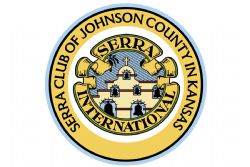Do you breathe? Does your heart beat?
Did you know that medicine, in its advanced knowledge and understanding of the human body, cannot explain what drives your breathing mechanism or sustains your heartbeat? To be sure, medicine understands how these things happen, but it cannot explain why they persist, breath after breath, heartbeat after heartbeat. Both phenomena - the repetitive nature of your breathing and the persistence of your heartbeat - can be adequately explained only through faith, and the understanding that one’s soul (God living in one’s being) keeps one animated – that is to say, alive. Medicine and science can describe at the molecular level the physical elements that contribute to how these phenomena occur, including the cells that generate your heartbeat and trigger your breathing, but medical experts cannot explain why these life forces continue spontaneously, day after day, year after year.
Over the years, I made no bones about helping my patients understand medicine’s limitations and the importance of recognizing God’s role in the grand scheme of human life, more than a few aspects of which medicine cannot explain. It has everything to do with respect for human life and awe of its Creator.
If you struggle in private prayer. Contemplate the awesomeness of your heartbeat and your breathing. In the quiet, it's a great place to start. Have you thanked God today for your ability to breathe? How about thanking him for your heartbeat? For the breaths and heartbeats of your spouse? Your children? You're beginning to touch the tip of the prayer iceberg.
Jesus instituted the Eucharist at the Last Supper, an event we recollected once again on Holy Thursday last week. His desire was for a New Covenant, in his Body and Blood, which were shed for love of you and me. This New Covenant is entirely gift. Jesus gives life and He gives Himself to sustain that life. We are the recipients of both.
Twelve-step recovery programs teach an attitude of gratitude. It’s the way to a healthy life, physically, emotionally, and spiritually. And if we’re grateful, our gratitude for life and all that goes with it must first be expressed to God.
In one’s approach to Mass and to Eucharistic Adoration, gratitude is a great starting point. Every time. Beginning every encounter with Jesus with an attitude of gratitude, whether at Mass or in Eucharistic adoration, helps keep one aware of one’s place before God: we are undeserving recipients of His infinite mercy and love. From this starting point, make whatever time you spend with Jesus inclusive of prayer of thanksgiving. Then be quiet. Listen for His response. You won’t miss it.




